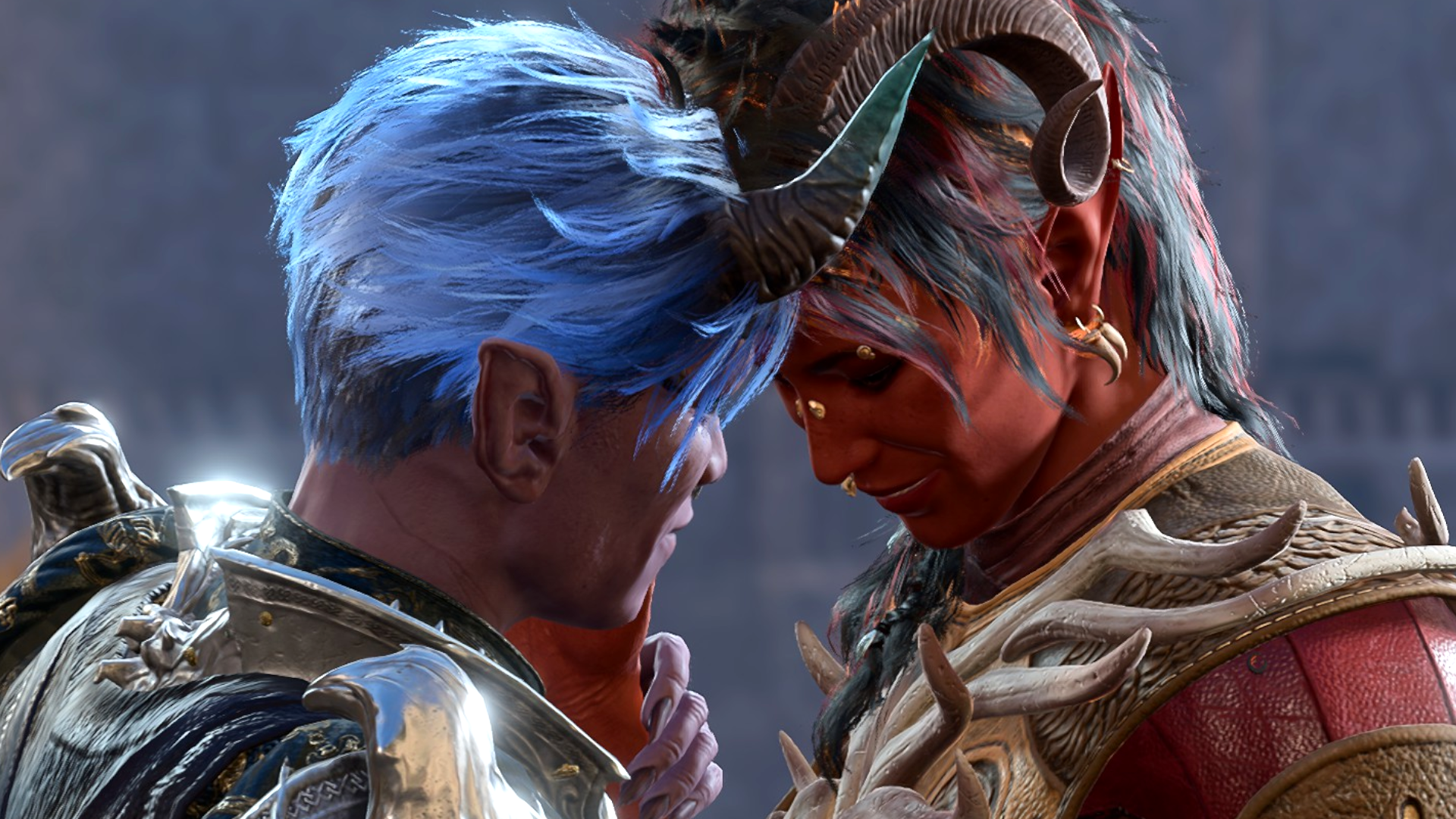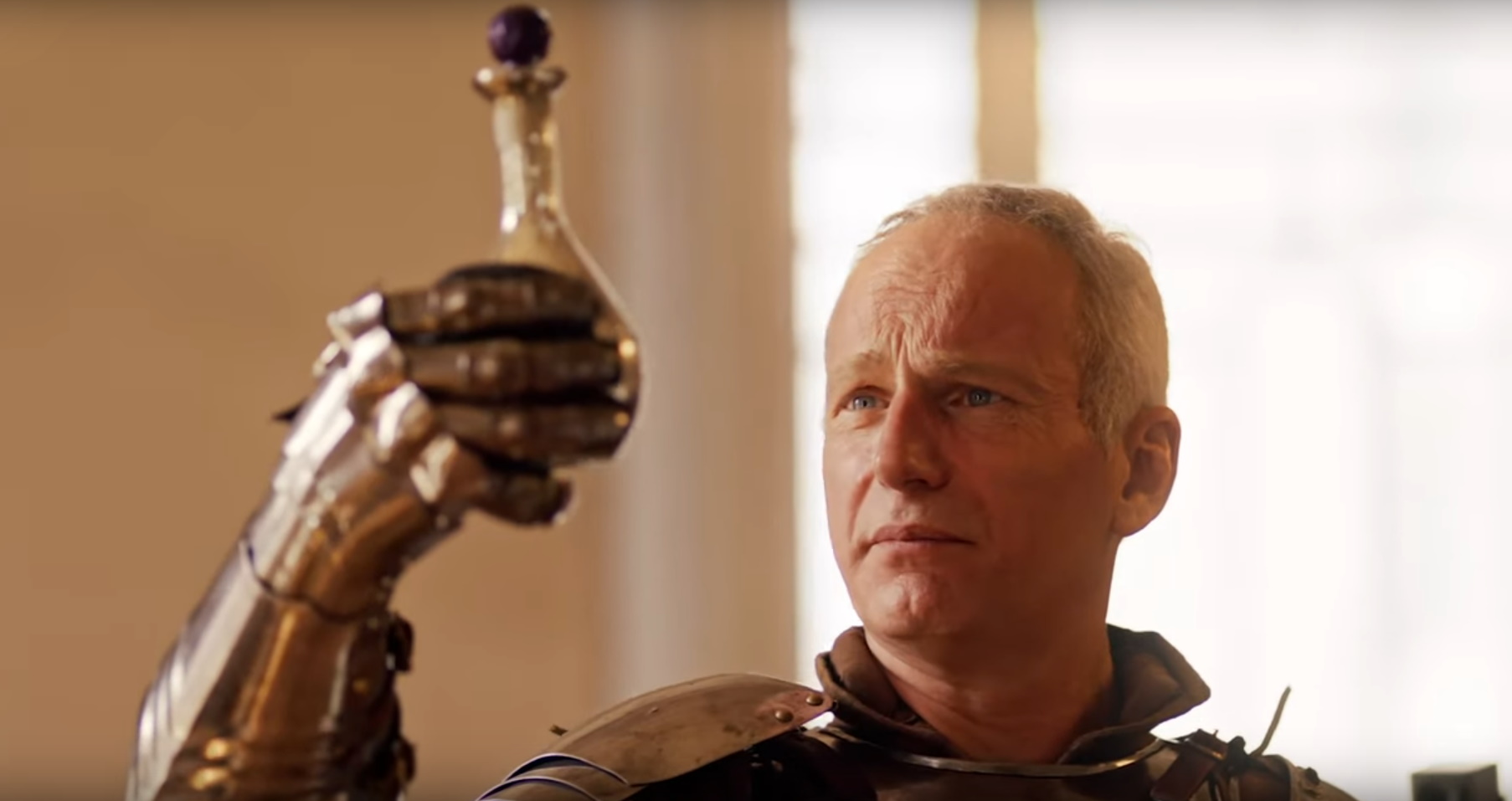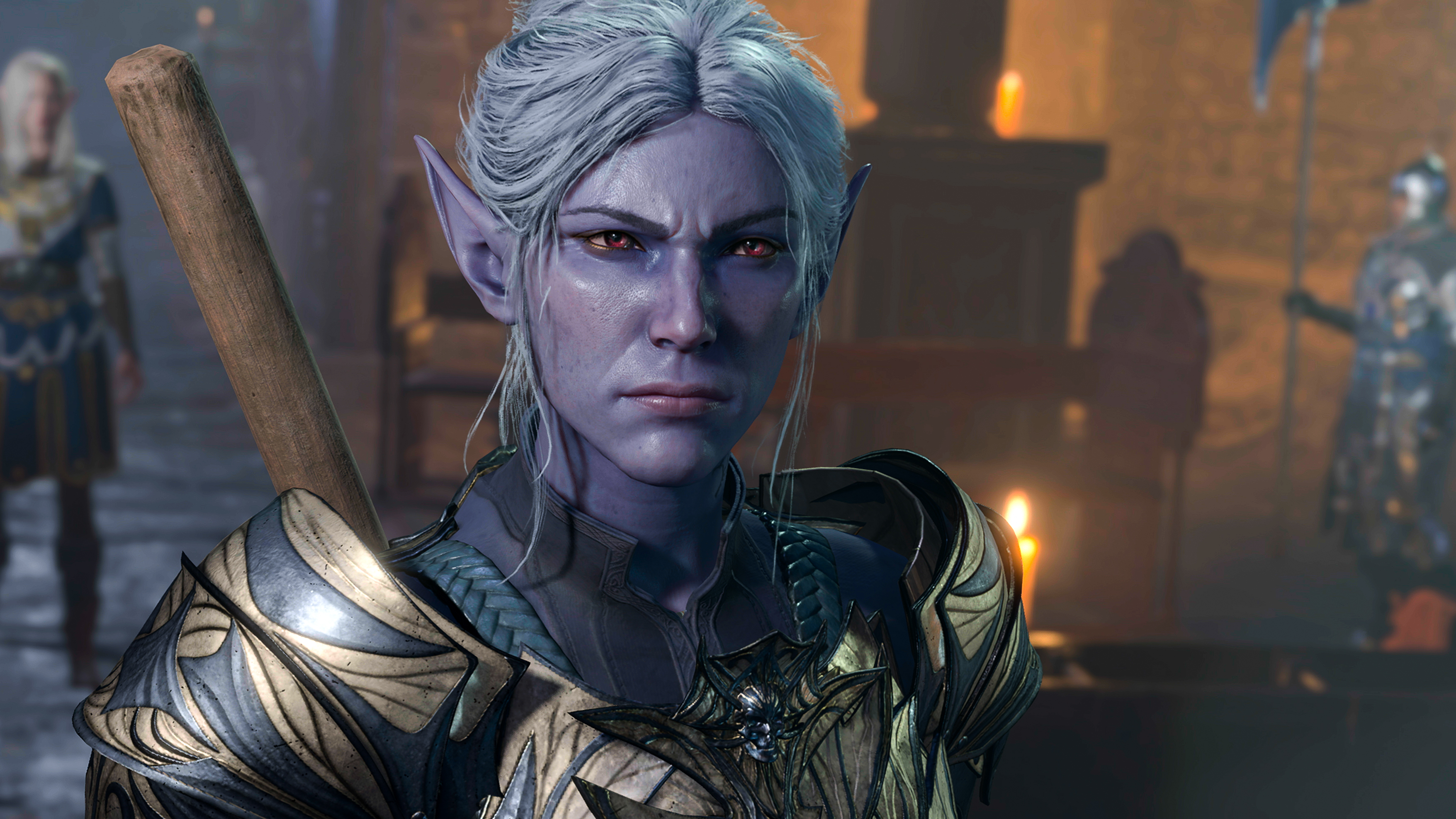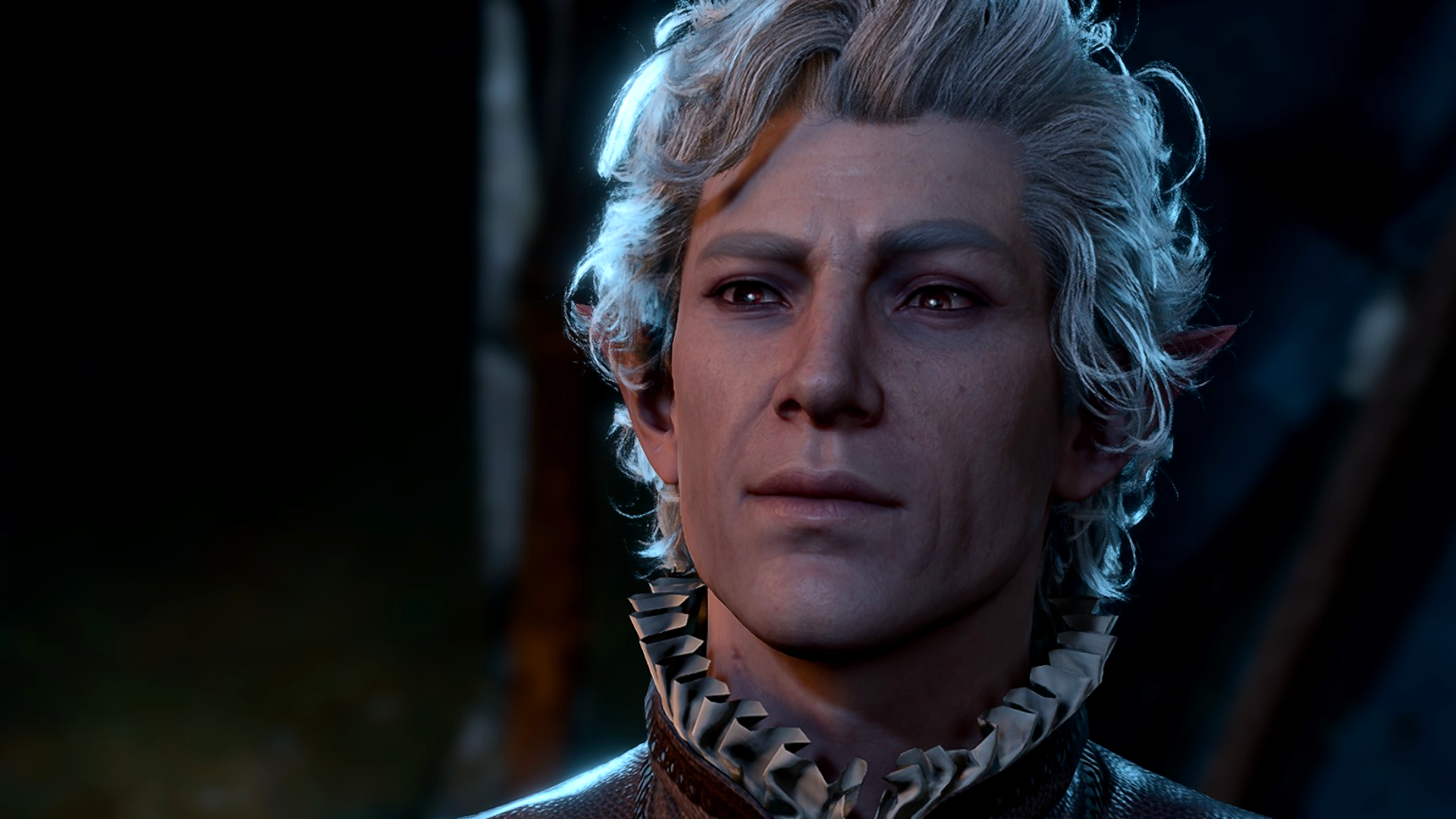I'm sad to see the old gang go, but Larian really doesn't need the Baldur's Gate IP or D&D to make another groundbreaking RPG
The future's looking bright.

Larian Studios, the developer behind Baldur's Gate 3, has recently announced that it'll be moving away from D&D games, also citing a general lack of enthusiasm when it came to developing DLC for BG3. And honestly? I'm pleased as punch.
Well, for the most part. I am admittedly holding some conflicted feelings about these characters' stories continuing elsewhere, and the fact there won't be any Larian-quality expansions for one of my favourite games. But as I said back in September last year there are plenty of nerdy, mechanical reasons why a high-level D&D campaign would struggle in a videogame environment.
Overall, Larian's move away from the Forgotten Realms hasn't dimmed my hype for the studio's next big project—if anything, I'm happy to break free from the dreaded d20, even as someone who has played his fair share of D&D and, allegedly, enjoyed most of it.
Larian's homebrew

I think Dungeons & Dragons 5th edition—the tabletop RPG system that forms the bones of Baldur's Gate 3—is just fine. It's a solid grab-bag of fantasy wargame dungeon crawling, it has a nice balance between mechanical complexity and crunch, and it does long-form 'go to place and fight monsters, repeat' campaigns pretty well. It's a fantasy jack of all trades that's popular for some very good reasons.
But as anyone who has run the game for a long time will tell you, it's not exactly perfect. Most mechanics outside of trading blows are witheringly thin, causing most DMs to have to cook up their own systems. It also doesn't excel at telling any particular kind of story without a heavy dose of custom rules, so its reputation for narrative is more a product of its player base than its books.
Wizards of the Coast's own attempts at addressing this haven't entirely shaken out. I could write an entire essay on why the default 5e chase rules are a complete momentum-killer—and there's a reason a ton of DMs lift "skill challenges" from D&D 4th edition, since they're the only thing that really work with the established law of "just use an ability check for it". It also has problems when it comes to balancing combat encounters, which only gets worse at higher levels.
Play at any D&D table for long enough, and you'll eventually wind up with a campaign stuffed to the brim with ad-hoc rulings and jury-rigged homebrew systems—and that's exactly what Baldur's Gate 3 is. As PC Gamer's Robin Valentine pointed out in August of last year, playing it is like having "an eccentric DM who house-rules everything".
Keep up to date with the most important stories and the best deals, as picked by the PC Gamer team.
The fun mechanical bits of Baldur's Gate 3—the unhinged builds, the way it tackles Legendary Actions in Honour Mode—it's almost all Larian. Magic item attunement isn't a thing, Legendary Actions aren't just "the monster takes a swipe at you", and so on. As someone who was familiar with 5th edition going in, half of the fun in building out my character involved seeing how the studio's shook up D&D's existing meta (to the extent that you can have such a thing in a TTRPG) .
That's not to say Larian only had good ideas. In the game's early access, for example, every character could disengage as a bonus action, and some cantrips created damaging surfaces, making them better than early limited-resource spells in terms of damage. But that's what the early access period was for, and they listened to feedback like any good DM should.
Point being, as Divinity: Original Sin 2 already proved years ago, Larian doesn't need 5th edition D&D to make a solid systems-driven RPG. But what about the story?
Forgetting about the Realms

D&D is an old game, which means its usual settings—the Forgotten Realms, Eberron, and so on—are all thick, textured universes. They're filled with lovingly-handcrafted lore, enough novels to fill a small library, and a Silmarillion-level of detail accrued from decades of shared storytelling. But any writer worth their salt will tell you that while you can worldbuild as much as you'd like, it won't make your story good or interesting on its own.
Don't get me wrong, I adore dense worldbuilding. I'm currently planning out a new campaign on the weekends, and I'm having a grand old time sketching out the world's gods, cultures, and so on. But c'mon, we all know that the Silmarillion on its own is as dry as any history book, in the same way that every DM knows their players won't read their 50-page long Google docs, no matter how much we want them to.
Point being, you can have the most detailed fantasy setting in the world backing you (and I think Baldur's Gate 3 has benefitted from that), but worldbuilding is only ever interesting if there are characters, stories, and plots tied to it that we care about. Whether you're sitting at a table rolling dice or reading a book, the emotional core of a story is vital. Worldbuilding serves characters, dialogue, and plot—not the other way around.

The story of Baldur's Gate 3 is exceptional not because of where it was set, but because of how it was written. Everything from your companion characters, to the musical score, to the stellar performances, to the exhausting amount of mocap—that's all Larian Studios, baby.
That's not to say "D&D's trash and Larian made it good", rather, Larian's storytelling will follow the studio in its transition away from D&D. We might not get anymore Karlach, Astarion, or Gale—but we'll learn about new characters, created with exactly the same amount of care. I'm not sure I can say the same for whatever plans Wizards of the Coast has for the IP and characters it now owns.
Ultimately, I do still think Larian was helped by D&D. The name-brand recognition alone has undoubtedly bolstered the game's success, a strong mechanical basis (with some flaws) helped the studio design a solid RPG, and the thick tomes of nerd lore were likely awesome to work with for its fleet of writers.
But Larian has been moving from strength to strength—a strength built up from a slow-and-steady growth philosophy that empowers its developers to make good stuff, rather than chase profit margins. Larian Studios never needed D&D, but it was nice to see that venn diagram become a circle for a short while.
The news that Larian is moving onto different pastures, however, only has me excited for whatever comes next—'cause I've got no idea what to expect. Hit up Massif Press, Swen. Make Lancer into a videogame, I double-dare you.

Harvey's history with games started when he first begged his parents for a World of Warcraft subscription aged 12, though he's since been cursed with Final Fantasy 14-brain and a huge crush on G'raha Tia. He made his start as a freelancer, writing for websites like Techradar, The Escapist, Dicebreaker, The Gamer, Into the Spine—and of course, PC Gamer. He'll sink his teeth into anything that looks interesting, though he has a soft spot for RPGs, soulslikes, roguelikes, deckbuilders, MMOs, and weird indie titles. He also plays a shelf load of TTRPGs in his offline time. Don't ask him what his favourite system is, he has too many.

